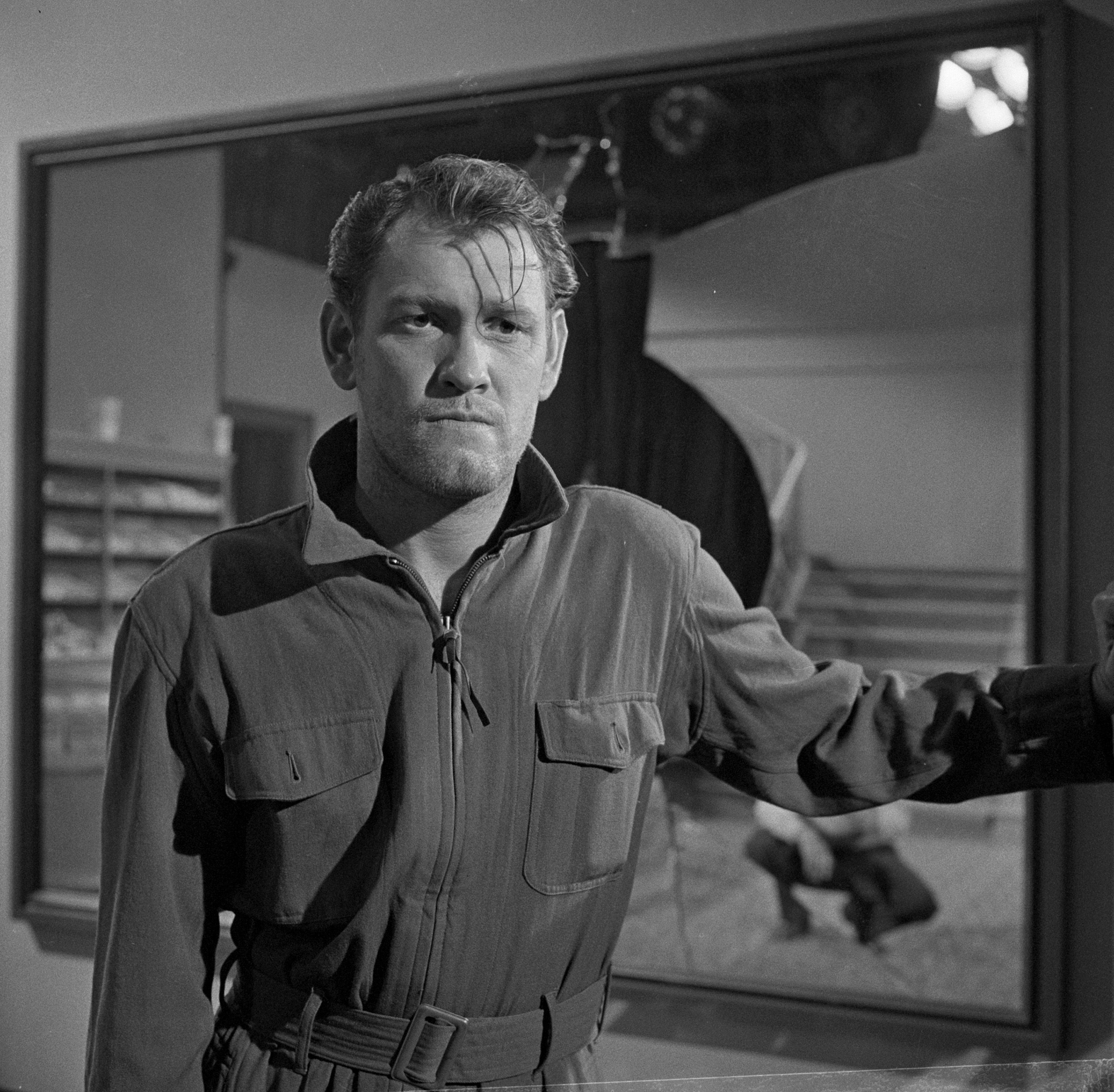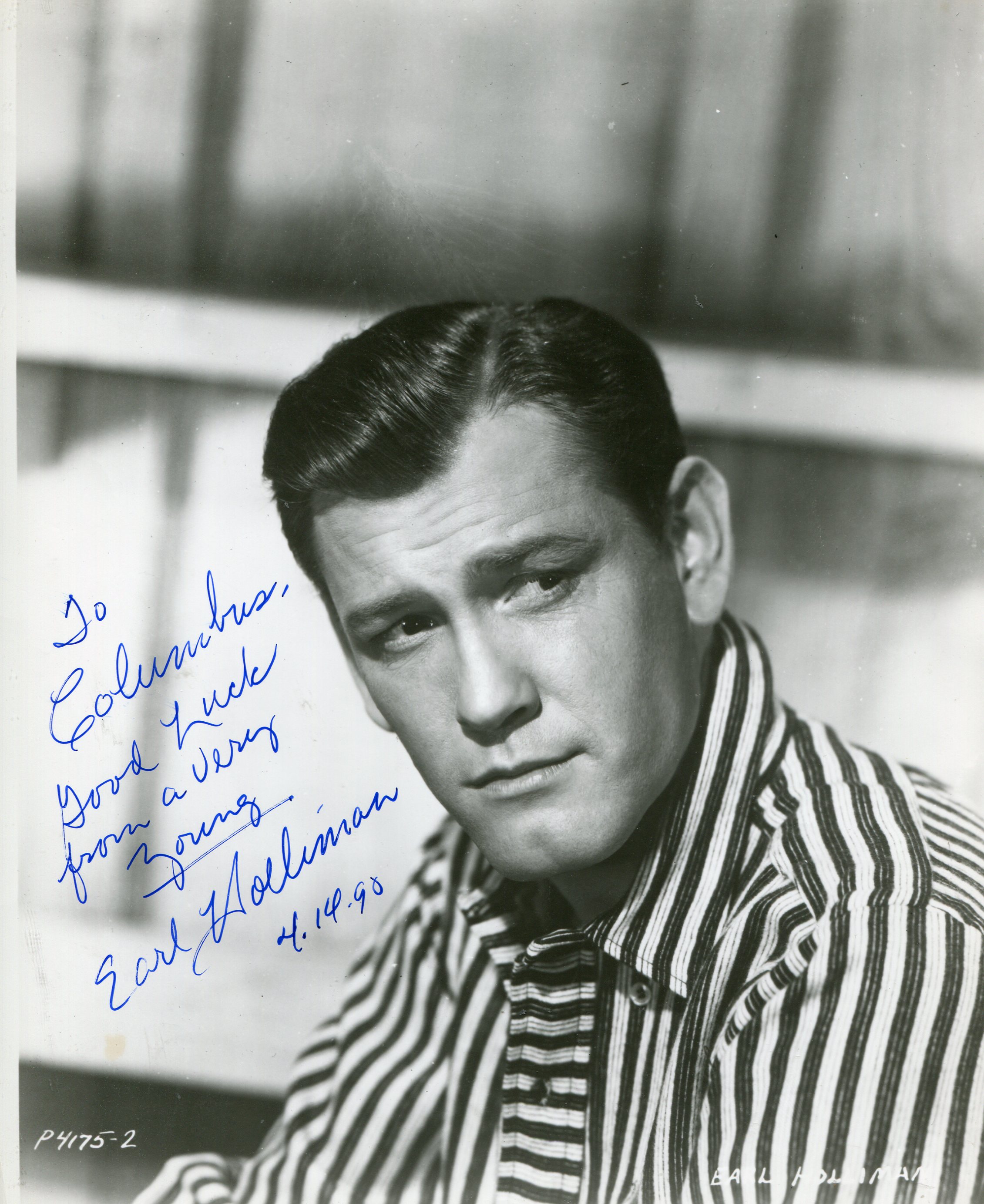Earl Holliman: Remembering A Beloved Screen Presence
For many, the name Earl Holliman brings back a flood of memories, recalling his distinct presence across screens big and small. He possessed a unique charm, a way of drawing you into every character he played, so it's almost no surprise people still talk about him. From dramatic roles to lighter moments, his work left a real mark on viewers, making him a truly memorable figure in entertainment history. You know, there's just something about his performances that stays with you, even decades later.
He was, in a way, a familiar face, someone who seemed to appear in so many different kinds of stories. Many folks, myself included, felt a strong connection to his characters, like the kind of bond you form with a favorite television personality. That, is that, a testament to his acting skill, how he could make you feel like you truly knew the person he was portraying.
Even now, in 2024, there's a fresh wave of interest in his life and work, with people discovering or rediscovering his contributions. There are, for instance, conversations about his personal journey that add another layer to his public image. This renewed attention, you know, just shows how much he meant to people, and how his legacy continues to resonate.
Table of Contents
- A Look at Earl Holliman's Life and Career
- Earl Holliman: A Legacy That Endures
- Frequently Asked Questions About Earl Holliman
A Look at Earl Holliman's Life and Career
Earl Holliman's path in Hollywood was a long and varied one, marked by a range of roles that showed his remarkable acting ability. He was, in some respects, a true working actor, always bringing a certain authenticity to his parts. His career, you know, spanned several decades, touching many different eras of film and television.
Personal Details and Bio Data of Earl Holliman
| Detail | Information |
|---|---|
| Full Name | Henry Earl Holliman |
| Date of Birth | September 11, 1928 |
| Place of Birth | Delhi, Louisiana, U.S. |
| Date of Death | November 29, 2024 |
| Place of Death | Los Angeles, California, U.S. |
| Occupation | Actor, Animal Rights Activist |
| Years Active | 1952–2000 |
| Notable Roles | Sgt. Bill Crowley in Police Woman, Matt Dillon in The Twilight Zone (Where Is Everybody?), many film roles. |
Early Days and the Path to Acting
Born in Louisiana, Earl Holliman's early life, you know, prepared him for the diverse characters he would later portray. He came from a humble background, which perhaps gave him a grounded quality often seen in his performances. His journey to becoming an actor was, in a way, a gradual one, built on dedication and a clear passion for the craft.
He served in the United States Navy, and this experience, arguably, gave him a certain discipline. After his service, he pursued acting, starting with smaller parts that helped him hone his skills. It was, you know, a time of learning and growth, setting the stage for his later successes.
Notable Roles and Memorable Performances
Earl Holliman's career is filled with performances that have stayed with audiences for a long time. Many people, for instance, remember him fondly from his time on the hit television show Police Woman. As a kid, some viewers were just in love with him in that series, finding his portrayal of Sergeant Bill Crowley to be very appealing. He brought a certain warmth and a grounded nature to the role, which really resonated with those watching at home.
Beyond television, he also made a significant impact in films. There's a particular memory of him in the first Twilight Zone episode, "Where Is Everybody?", which someone just watched the other night. In that story, he played a character grappling with a strange, empty world, and his performance really captured the feeling of isolation. It's, you know, a classic episode, and his work in it is truly a highlight.
Then there's the film The Other Side of Dawn, where Holliman played a psychologist working with the police. In this role, he also became the guardian to a character named Alexander. This movie, you know, seems to have been quite impactful for some viewers, especially in how it revealed aspects of his personal identity. His ability to take on such a layered character, a professional who also cares for a young person, truly showed his range.
It's interesting to consider how his roles sometimes carried subtle implications. In one film, for instance, two bad guy characters, played by Earl Holliman and Lee Van Cleef, were clearly portrayed as gay. They even shared a bedroom, though with separate beds, and there was a scene that hinted at their relationship. This, you know, was a rather bold portrayal for its time, showing a willingness to explore different kinds of characters.
Many fans simply loved Earl Holliman in anything he did, which speaks volumes about his consistent appeal. He had a way of inhabiting his roles that made them feel authentic, whether he was playing a hero, a troubled soul, or even, in some respects, a villain with hidden depths. His presence, you know, always added something special to whatever project he was part of.
Earl Holliman's Personal Journey
For many years, aspects of Earl Holliman's personal life remained private, as was common for actors of his generation. However, in more recent times, conversations have emerged that shed light on his identity. Some viewers, for example, had no idea or even imagined that Holliman was gay, until they saw him in that movie, which they refer to as Alexander, but which seems to be The Other Side of Dawn. This revelation, you know, came as a surprise to some who had admired him for a long time.
The discussion around his sexuality, apparently, sparks broader questions for some fans. There's a thought, for instance, about whether Earl Holliman was "the only gay actor left who worked with other closeted gays like Rock Hudson, James Dean, and Burt Lancaster." This kind of query, you know, highlights the historical context of Hollywood, where many actors felt the need to keep their personal lives private. It speaks to a certain era, a time when such things were not openly discussed, and Holliman, in a way, lived through that period.
His story, therefore, offers a glimpse into the lives of performers who navigated their careers during a time when being openly gay was not accepted in the same way it is today. It's a reminder, too, that public figures, like your favorite actors, often have complex personal stories behind their on-screen personas. His personal journey, you know, adds a layer of depth to his public image, making him, perhaps, even more relatable to some.
The fact that this information is now openly discussed, even after his passing, shows a shift in how we remember and appreciate public figures. It allows for a more complete picture of who he was, both as an actor and as a person. This openness, you know, is a really good thing for understanding the history of entertainment and the people who shaped it.
Earl Holliman: A Legacy That Endures
Earl Holliman's impact on film and television, you know, continues to be felt. His work, which spanned many different genres and decades, means that new generations can still discover his talent. He was a presence that could elevate any scene, bringing a certain gravitas or a touch of humor, depending on what the moment needed. His ability to connect with audiences, you know, is truly why his legacy remains strong.
Even if some people might need a gentle reminder of who he is, as in "Also, Earl Holliman if anyone remembers him," his performances often speak for themselves. The way he portrayed characters, whether as a psychologist working with the police or a person lost in a strange town, left a lasting impression. He was, in a way, a master of his craft, capable of conveying deep emotions and complex motivations with ease.
His roles, particularly those that touched upon sensitive topics or challenged norms, show a quiet courage. The portrayal of gay characters, for instance, even subtly, in films from decades ago, was not always common. This, you know, makes his contributions even more significant when we look back. He helped, in some respects, to broaden the types of stories told on screen.
To watch his films and television shows today is to see a piece of entertainment history, but also to witness the work of an actor who gave his all to every part. His career is a testament to perseverance and a genuine love for acting. You can, pretty much, feel that dedication in every performance, making his work timeless. Learn more about classic television dramas on our site.
His memory, you know, is kept alive not just by his roles, but also by the personal stories and connections people made with him through his work. It's a reminder that actors are more than just the characters they play; they are people who leave a lasting mark on culture and on the hearts of their fans. We, as viewers, are lucky to have had him grace our screens for so long. His contributions, you know, are still very much appreciated, and you can learn more about Hollywood's golden age right here.
So, next time you are looking for something to watch, perhaps consider revisiting an Earl Holliman classic. You might find yourself, in a way, falling in love with his performances all over again, just as many have done before. His enduring appeal, you know, is a clear sign of his remarkable talent and the lasting impression he made on the entertainment world. He was, quite simply, a memorable part of so many people's viewing experiences.
Frequently Asked Questions About Earl Holliman
Was Earl Holliman gay?
Yes, in his later years, Earl Holliman openly acknowledged his identity as a gay man. For instance, some viewers realized this after seeing him in the film The Other Side of Dawn, where he played a psychologist who becomes a guardian. This personal detail, you know, became more widely known over time.
What was Earl Holliman's most famous role?
Earl Holliman is, you know, perhaps most widely recognized for his role as Sergeant Bill Crowley on the popular 1970s television series Police Woman. Many people, for example, remember being very fond of him in that show as a kid. He also had many memorable film roles, including his part in the very first Twilight Zone episode, "Where Is Everybody?".
Did Earl Holliman work with other famous actors?
Yes, throughout his extensive career, Earl Holliman worked with many notable figures in Hollywood. While the question of him working with specific "closeted gay actors" like Rock Hudson or James Dean is more of a fan speculation, he was certainly part of a generation that included many iconic performers. He was, in a way, a contemporary of many stars, appearing in films and TV shows alongside a wide range of talent. You can find out more about his collaborations on a well-known film database.

Pictures of Earl Holliman

Earl Holliman - Alchetron, The Free Social Encyclopedia

Earl Holliman - Movies & Autographed Portraits Through The